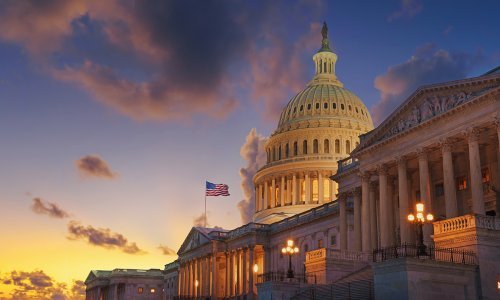
Introduction
The concept of economic security has become a cornerstone of U.S. policy, intertwining national security with economic resilience. In an era defined by geopolitical tensions, supply chain disruptions, and rapid technological advancements, the United States is re-evaluating its strategies to ensure sustained growth and protect its economic sovereignty. This article explores the evolving frameworks shaping U.S. economic security, focusing on key policies, challenges, and global implications
The Pillars of U.S. Economic Security
- Resilient Supply Chains:
Recent crises, such as the COVID-19 pandemic, exposed vulnerabilities in global supply chains. To mitigate risks, the U.S. has prioritized reshoring manufacturing capabilities and diversifying trade partners. Programs like the CHIPS and Science Act aim to boost semiconductor production domestically, reducing reliance on foreign sources.
- Technological Leadership:
Maintaining dominance in critical technologies, such as artificial intelligence, quantum computing, and 5G, is central to economic security. Federal funding for research and public-private partnerships underscores the importance of innovation in countering global competitors.
- Energy Independence:
The transition to renewable energy aligns with both environmental goals and economic security. Investments in green energy infrastructure, such as wind and solar, reduce dependence on volatile global oil markets while creating jobs domestically
- Trade Policy and Tariffs:
Strategic tariffs and trade agreements are tools to protect American industries from unfair competition. Balancing these measures with global trade commitments remains a delicate task
Challenges to Economic Security
- Global Competition:
China’s Belt and Road Initiative and its growing influence in global trade challenge the U.S.’s economic dominance. Countering this requires innovative strategies and alliances with like-minded nations
- Cybersecurity Threats:
The rise of cyberattacks targeting critical infrastructure highlights the need for robust cybersecurity policies. Federal agencies, alongside private sector leaders, are investing heavily in defensive measures.
- Economic Inequality:
Domestic economic disparities can undermine the unity required to face external threats. Policies addressing income inequality and workforce development are integral to fostering resilience
Global Implications of U.S. Strategies
As the U.S. fortifies its economic security, the ripple effects are felt worldwide. Trade partners adapt to changing policies, while adversaries recalibrate their strategies. The balance of power in key sectors, such as technology and energy, is shifting, with the U.S. leveraging its strengths to maintain global leadership
Conclusion
Economic security is no longer a domestic issue but a global imperative. As the United States adapts to a complex international landscape, its strategies will shape not only its own future but also the trajectory of global economics. By investing in innovation, fortifying supply chains, and addressing domestic challenges, the U.S. aims to build a resilient and competitive economy for generations to come